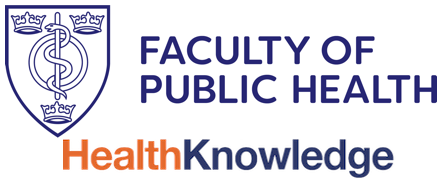Equality, Equity and Policy: Appreciation of Concepts of Power, Interests and Ideology
Power
For a sociological discussion of power and the power relationship between health professionals and health care users see Module 4a: concepts of health, wellbeing and illness, and the aetiology of illness
Power is generally understood to mean the ability to achieve a desired outcome i.e. to ‘do’ something. In policy making the concept of power is typically thought of in a relational sense, as in having power over others. There are three dimensions of power: decision making power, non-decision making power and power as thought control (Buse et al 2005).
Decision making power: Individuals and groups rich in political resources (such as holding official office, control over information, social standing, and wealth) are able to directly influence policy decisions.
Non-decision making power: Individuals and groups are able to apply influence and impose limits on the policy agenda.
Power as thought control: The ability to influence others by shaping their preferences.
Interests
All of the actors involved in the policy process (see Section 8: Principal Approaches to Policy Formulation) have their own interests. Interest groups (also known as pressure groups) are a voluntary collection of individuals that attempt to influence policy to achieve specific goals. There are two major types of interest groups.
Sectional groups seek to protect and enhance the interests of their members (or the section of society they represent) e.g. trade unions. Their influence depends on how important the government thinks the group’s role is. Producer sectional groups tend to have more influence over government policy than consumer sectional groups, because the cooperation of producer sectional groups is more important for economic reasons and policy implementation. The medical profession is one of the most dominant sectional groups in many countries around the world.
Cause groups support and promote a particular issue e.g. people living with AIDS or human rights. While some cause groups are formed spontaneously through the actions of unconnected individuals based on beliefs, others can actually be a ‘front’ for corporate interests to get their views into civil debate. For example, the Global Climate Coalition which campaigned against the 1997 Kyoto Protocol to the UN Framework Convention on Climate Change, was actually funded by the oil and motor industries (Buse et al 2005).
Peterson (1999, in Buse et al 2005) argues that interest groups perform seven functions in society.
Table 1: Seven functions of interest groups.
|
Participation |
Interest groups provide an alternative way for voters to get involved in politics and register their opinions. |
|
Representation |
Interest groups can widen the range of opinions under consideration. |
|
Political education |
Interest groups provide a way for members to learn about the political process. |
|
Motivation |
Interest groups can draw new issues to the attention of governments and develop new policy options. |
|
Mobilisation |
Interest groups build pressure for action. |
|
Monitoring |
Interest groups often assess the performance and behaviour of governments. |
|
Provision |
Interest groups can use their knowledge of a particular issue to deliver services without government funding. |
Ideology
Ideologies are belief systems around the allocation and use of power in society. In public health, key ideological debates revolve around individual freedom vs. authority of the state, and the balance between individual and collective responsibilities.
Baggot (2000) describes three broad ideological perspectives used in public health policy, all three of which can be seen in UK health policy.
Collectivism/socialism
This ideology places great emphasis on the role of the state and other collective arrangements (cooperative efforts, voluntary societies) and is highly critical of individualism (e.g. the ability of isolated individuals to produce their own solutions to complex social problems). State intervention is the principal means of social improvement and this ideology may be used to support public health interventions that impinge on individual liberties, for example a smoking ban in public places.
Individualism/libertarianism
This ideology emphasises the freedom of the individual to pursue any activity without interference from the state (provided others are not harmed by the activity). The ideology may see the collectivist state as a hostile entity (‘nanny state’, ‘food and drink police’) that coerces and disempowers individuals. It holds that it is unfair to force individuals to sacrifice personal freedom for a common good. This ideology calls for increased individual responsibility for health, and believes that individuals should make their own informed choices regarding health.
Environmental/green
This ideology opposes the destructiveness of industrial society, in particular its pursuit of economic growth at all costs. The ideology adopts an ecological model of health which emphasises illness arising from the environment in which people live.
References
- Baggot R (2000). Public health policy and politics. Houndmills: Macmillan Press Ltd.
- Buse K, Mays N, Walt G (2005) Making Health Policy. Understanding Public Health Series Open University Press.
- Peterson MA (1999). “Motivation, mobilisation and monitoring: the role of interest groups in health policy”. Journal of Health Politics, Policy and Law, 24: 416-20.
© Rebecca Steinbach 2009, Margaret Eni-Olotu 2016
